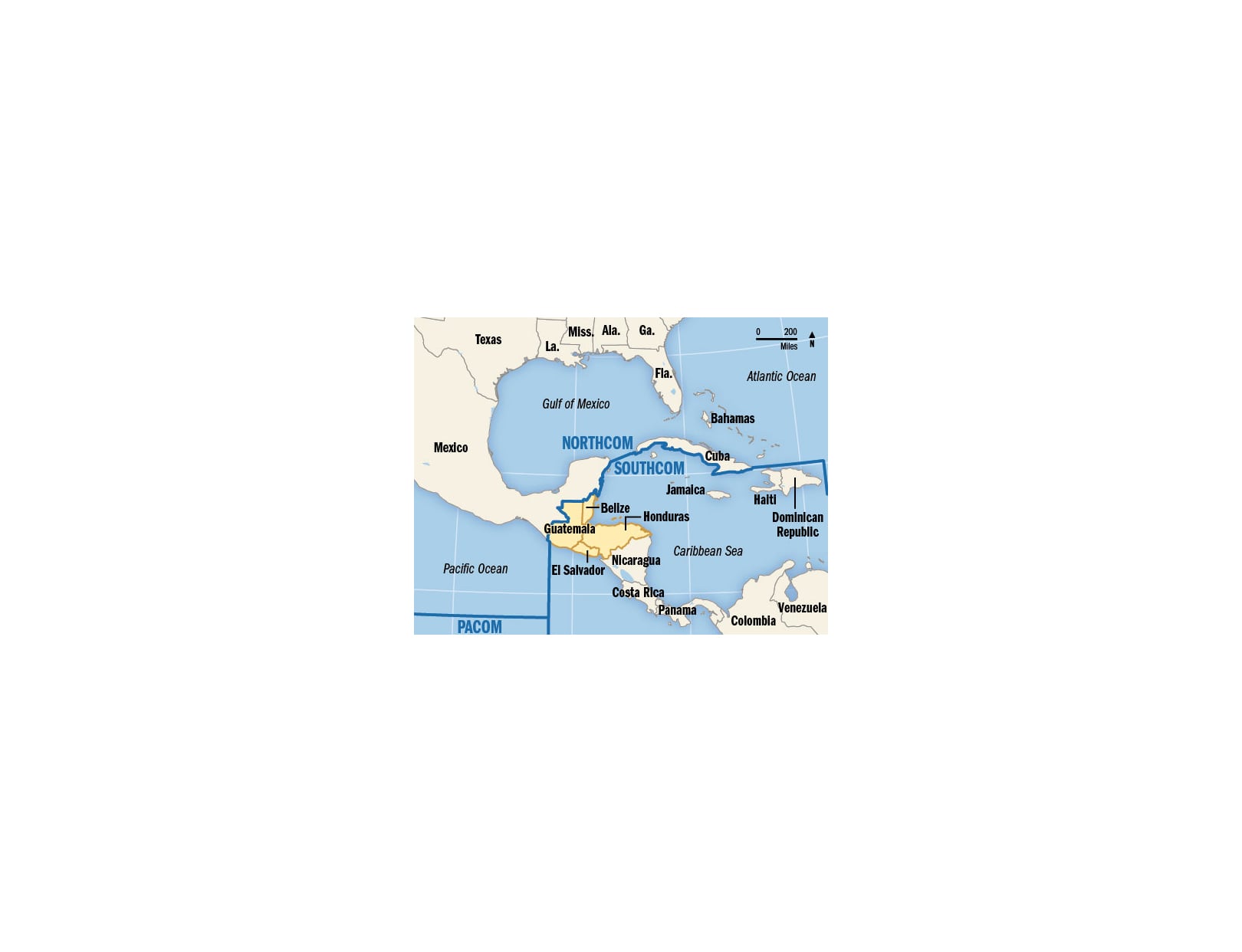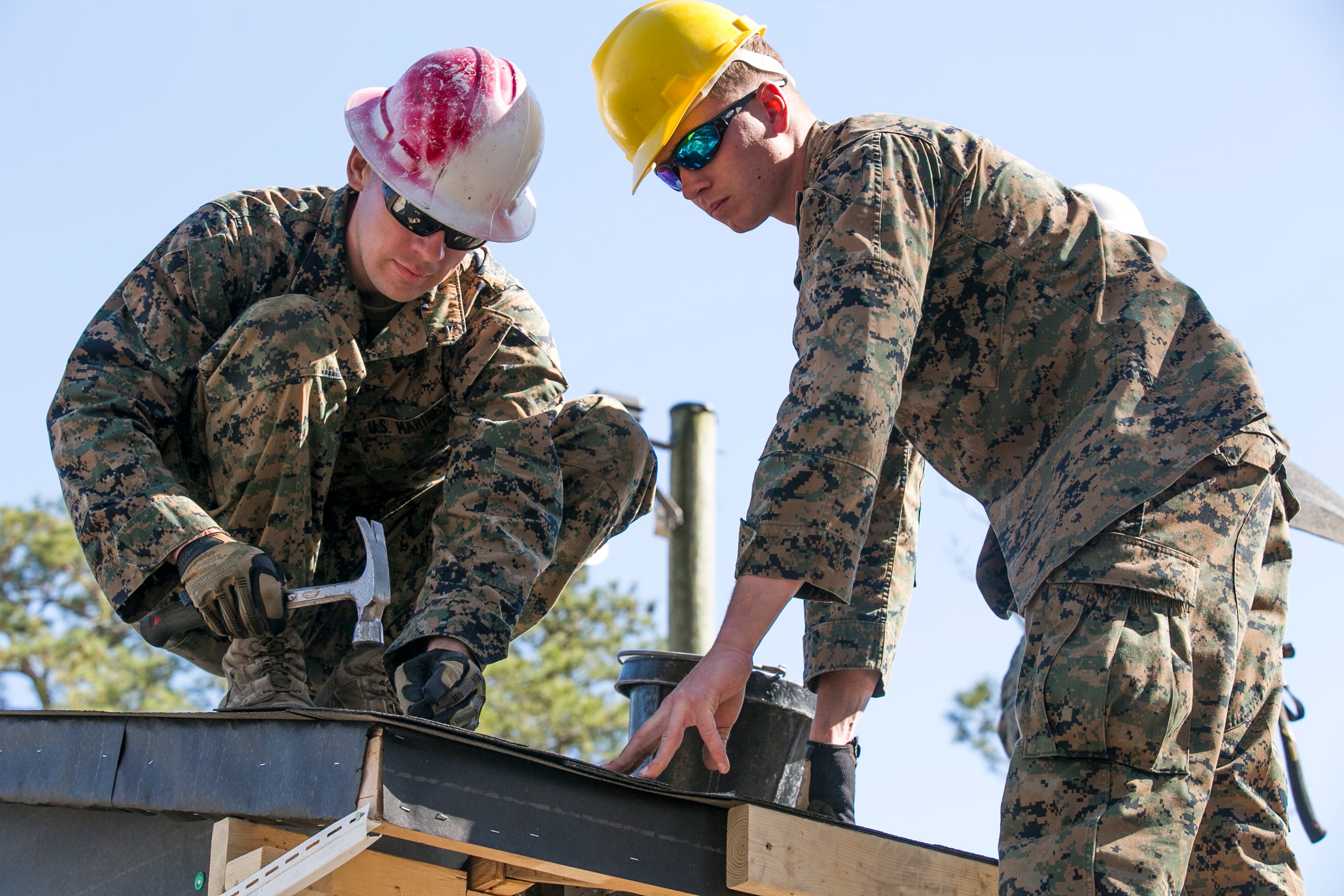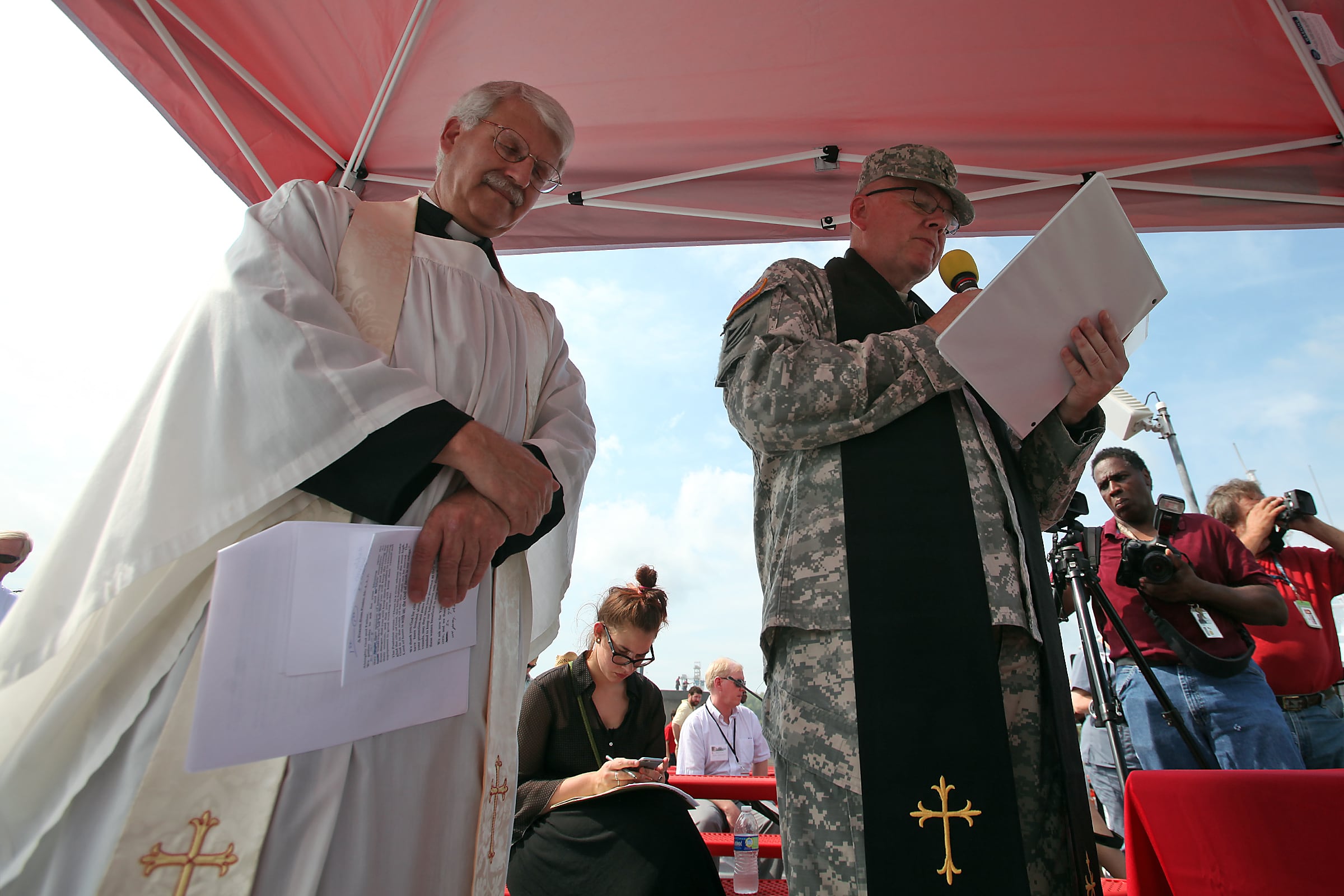About 250 East Coast Marines are preparing to form the U.S. military's first rapid-response land-based task force to be based in Central America, for U.S. Southern Command this summer where they'll train with local forces battling drug cartels militaries and stand ready to help conduct humanitarian response missions in the event of hurricanes and other natural disasters.
The members of Special Purpose Marine Air-Ground Task Force-South are gathering at Camp Lejeune, North Carolina, for a mid-April certification exercise prior to their June deployment to four Central American countries. The unit includes about 100 Marines from the Camp Lejeune's -based 8th Engineer Support Battalion, plus and detachments from II Marine Expeditionary Force and 2nd Marine Aircraft Wing.
Like the Marine Corps' other task forces designed to respond to contingencies occurring within a designated combatant commands, SPMAGTF-South will be dispersed throughout U.S. Southern Command's area of responsibility operate in a dispersed environment. Four CH-53E Super Stallion heavy-lift helicopters and the bulk of the Marine engineers will be based in Honduras, with other teams working in the neighboring countries of Guatemala, El Salvador and Belize, said Capt. Armando Daviu, a spokesman for Marine Corps Forces South.
The deployment is expected to last six months, and a replacement unit won't deploy again until the following spring.
It's the first time the region will see a land-based Marine rotation of this scale, and it's new for a lot of the Marines as well, said Lt. Col. David Hudak, the SPMAGTF's commanding officer. Many assigned to the new unit have not yet been overseas.
"Marines nowadays are just looking for an opportunity to deploy," Hudak said. "This was one of the only shows in town, and about 90 percent volunteered to go. Morale is high and they're excited."
The timing is designed to coincide with SPMAGTF-South will deploy for six months during hurricane season. For a region that can be devastated by natural disasters like tropical storms or earthquakes, having Marines and heavy-lift helicopters in the region with underdeveloped militaries can go a long way.
"That's a unique thing having the SPMAGTF brings," Hudak said. "We have distributed teams in the four countries, but if there were a natural disaster or an event the U.S. was called to respond to, we'd have a limited but immediate capability to provide an initial short-term response."
Expanding existing partnerships
Standing up the new task force is part of a broader effort by SOUTHCOM and Marine leaders to partner more closely with other marine corps, navies, armies and coast guards in the region. The Marines will be based in some of the most troubled countries in the Western Hemisphere, including two from which tens of thousands of child migrants have fled for the U.S. border to escape violence caused by drug cartels and local gangs.

The Corps will stand up a new Marine air-ground task force for U.S. Southern Command in June. About 250 North Carolina-based Marines will deploy with four heavy-lift helicopters. They'll spend six months training alongside local militaries and will conduct humanitarian missions, if needed.
Photo Credit: John Bretschneider
That comes with some assumed doesn't come without risks to troops, and Hudak said the Marines' security will be a top priority, like it is during any other deployment.
"They understand that the liberty opportunities will be restricted," he said. "It's better than Iraq or Afghanistan, but still something to be aware of."
Military leaders like Gen. John Kelly, head of SOUTHCOM, and Brig. Gen. David Coffman, head of MARFORSOUTH, have stressed the importance of building partnerships and good will with Central and South American allies.
This new unit will build on an existing Marine mission to train alongside Central American militaries that are on the front lines of the drug war trade. With the ultimate destination for the goods being the U.S. border, Central American militaries are deploying into the region's jungles, and along its the coastlines, and brown water rivers to counter try to stop illicit trafficking of cocaine, weapons, money and even people.
Small teams of Marines have been deployed to Honduras, Guatemala, Belize and El Salvador in recent years to train local forces to combat cartels and narcotics traffickers. SPMAGTF-South will include security cooperation teams that will continue that training mission, Hudak said.
Officers who will lead the security cooperation teams have gone out to observe some of the training missions they'll undertake pick up. The Marines who will lead the mil-to-mil training have also been practicing their instruction techniques.
Meanwhile, Hudak said the engineers have been building small structures aboard Camp Lejeune like the schoolhouses and other infrastructure they'll construct in Central America. While deployed, the Marines with 8th ESB will build several schools, and work on road, utility and airfield construction, Hudak said. They've even sent a portion of the engineers to a local community college in North Carolina to learn more about utility construction before they depart.

Marines with 8th Engineer Support Battalion nail felt paper, a water-proofing and insulating material, to the roof of a building aboard Camp Lejeune, N.C. The engineers are preparing for an upcoming deployment to Central America, where they'll work on several construction projects.
Photo Credit: Cpl. Elizabeth Case/Marine Corps
The Marines have also completed a security cooperation course, a joint humanitarian cooperation course, a basic adviser course, and culture and language training. Many of the Marines deploying are Spanish-speaking, Hudak said, since it's the main language in three of the four countries where they'll be based. English is the official language in Belize.
In June, the unit will also participate in Tradewinds, a Belize-based international exercise that will include U.S., Belizean, Caribbean, Mexican and Canadian forces, Daviu said.
All of the missions for which SPMAGTF-South will be responsible for carrying out while deployed send an important message to the region that the U.S. and Marine Corps cares about that part of the world, Hudak said.
"We're all connected in this day and age, and the U.S. has a vested interest in the success of these countries," he said. "We're doing what we can to lend a hand."





